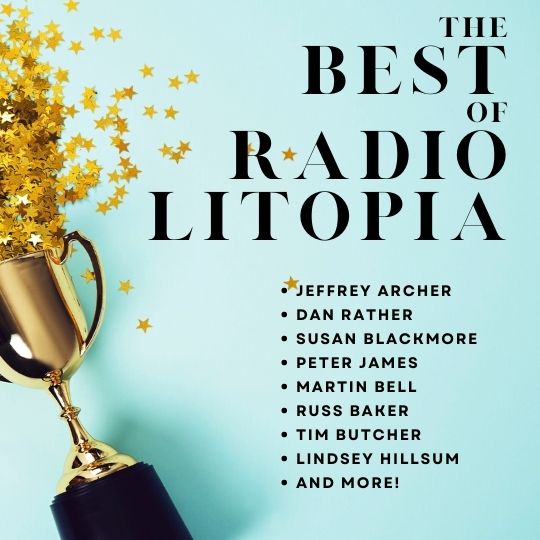Paul Whybrow
Full Member
It doesn't take a writer long to realise that however much art or craft is involved in creating their story, the overwhelming truth is that what they've entered is a business. Their novel is as much a commercial product as a tin of baked beans, to be promoted by advertising (that is largely ignored), and sold on a shelf, be it in a bookshop or an online retailer. If your book doesn't sell in a bookshop, then it has less shelf life than a can of beans, and will be remaindered after about six weeks.
I certainly agree with the sentiments expressed by Ursula K. Le Guin, about the sanctity of books, as posted by Katie-Ellen Hazeldene, but we still need to consider how to actually sell our books, and if that means them being adapted into other forms, then that's a sign of the way of the world. We can still create the best reading experience possible, for those wise enough to want the source material.
As it's become essential for writers to promote themselves and their books, if they're to make money from their literary creations, it surely makes sense to think commercially. Is your book just a book, or could it be adapted into a television series, a big screen movie, a radio play, a stage play, an audiobook, a graphic novel and—perish the thought—what merchandising opportunities does it offer? Could your superhero leap from the pages and the silver screen, as a plastic toy? The universe that you've painstakingly created on the page could become a Hollywood film heavy with CGI, before being built as a theme park.
Why not think big? As Michelangelo said:
The greater danger for most of us lies not in setting our aim too high and falling short; but in setting our aim too low, and achieving our mark.
Never forget, that the world's first billionaire writer J.K. Rowling earned much of her wealth from movies, licensing rights and merchandising toys, one of which gave more pleasure to their owners than was intended!
New Harry Potter Broomstick A Personal Vibrator For Kids?
In writing my Cornish Detective novels, I've paid attention to how the stories would be filmed, setting the action in real locations in the county, that are already popular tourist attractions. Cornwall is notable for its literary fame, what with Daphne du Maurier and Winston Graham's Poldark historical series. There was a long-running television series set here, about a detective called Wycliffe, based on W. J. Burley's novels. That series is still aired, but it's twenty years out of date, which leaves my protagonist Detective Chief Inspector Neil Kettle ready for stardom.
I wouldn't claim to be that commercially aware, but this is a visual age, so it would be foolish to ignore the possibilities of translating my words into moving images. Where's the joy, or sense, in writing an unfilmable novel? They said that The Lord of the Rings was unfilmable, and look what happened there. Other supposedly unfilmable novels include David Mitchell's Cloud Atlas, Maurice Sendak's Where The Wild Things Are and Bret Easton Ellis' American Psycho. Why not make things easier?
How about your stories?
Could they be turned into Hollywood films?
Or a children's television drama or cartoon?
Are your characters merchandisable—as fierce action figures or cuddly toys?

I certainly agree with the sentiments expressed by Ursula K. Le Guin, about the sanctity of books, as posted by Katie-Ellen Hazeldene, but we still need to consider how to actually sell our books, and if that means them being adapted into other forms, then that's a sign of the way of the world. We can still create the best reading experience possible, for those wise enough to want the source material.
As it's become essential for writers to promote themselves and their books, if they're to make money from their literary creations, it surely makes sense to think commercially. Is your book just a book, or could it be adapted into a television series, a big screen movie, a radio play, a stage play, an audiobook, a graphic novel and—perish the thought—what merchandising opportunities does it offer? Could your superhero leap from the pages and the silver screen, as a plastic toy? The universe that you've painstakingly created on the page could become a Hollywood film heavy with CGI, before being built as a theme park.
Why not think big? As Michelangelo said:
The greater danger for most of us lies not in setting our aim too high and falling short; but in setting our aim too low, and achieving our mark.
Never forget, that the world's first billionaire writer J.K. Rowling earned much of her wealth from movies, licensing rights and merchandising toys, one of which gave more pleasure to their owners than was intended!
New Harry Potter Broomstick A Personal Vibrator For Kids?
In writing my Cornish Detective novels, I've paid attention to how the stories would be filmed, setting the action in real locations in the county, that are already popular tourist attractions. Cornwall is notable for its literary fame, what with Daphne du Maurier and Winston Graham's Poldark historical series. There was a long-running television series set here, about a detective called Wycliffe, based on W. J. Burley's novels. That series is still aired, but it's twenty years out of date, which leaves my protagonist Detective Chief Inspector Neil Kettle ready for stardom.
I wouldn't claim to be that commercially aware, but this is a visual age, so it would be foolish to ignore the possibilities of translating my words into moving images. Where's the joy, or sense, in writing an unfilmable novel? They said that The Lord of the Rings was unfilmable, and look what happened there. Other supposedly unfilmable novels include David Mitchell's Cloud Atlas, Maurice Sendak's Where The Wild Things Are and Bret Easton Ellis' American Psycho. Why not make things easier?
How about your stories?
Could they be turned into Hollywood films?
Or a children's television drama or cartoon?
Are your characters merchandisable—as fierce action figures or cuddly toys?




